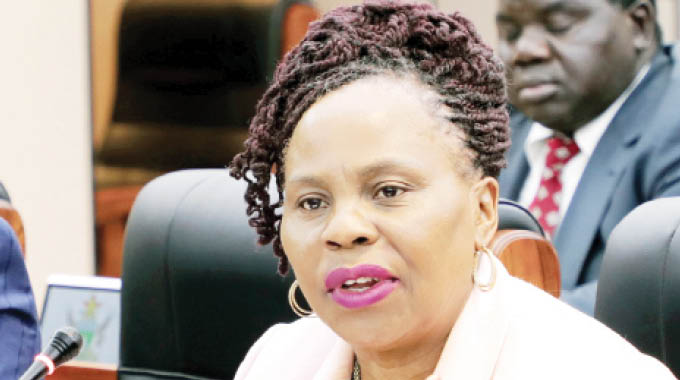Cabinet adopts new housing policy

Nqobile Tshili, Chronicle Reporter
CABINET has adopted the Zimbabwe National Human Settlements Policy (ZNHSP) which will address housing and social amenities backlog while reducing the rural and urban divide.
The country’s national housing backlog stands at about 1,2 million.
The policy also aims at clamping down on illegal selling of land and managing the depreciating resource.
Vice-President Kembo Mohadi, who is also the chairman of the Cabinet Committee on Social Services and Poverty Eradication presented the ZNHSP before Cabinet yesterday.
The policy is in line with vision 2030 and also dovetails with other regional and international development policies.
It integrates implications of climate change with aspects of rural and urban settlement planning, development and management.
In a 39th post Cabinet media briefing in Harare yesterday, Information, Publicity and Broadcasting Services Minister Monica Mutsvangwa said the ZNHSP will also provide the disaster risk assessments, environmental impact assessments and mitigation for both urban and rural areas.
“The policy will introduce a raft of changes that will ensure that planning, development and management of settlements is in line with national and international disaster risk reduction frameworks, and with environmental and climate change policies, laws and standards. This will help address huge housing and social amenities backlog and the disparities between rural and urban areas. It is also expected to reduce the high costs of building materials and housing finance,” said Minister Mutsvangwa.
She said all state land earmarked for human settlements shall be managed through the Ministry responsible for National Housing and Social Amenities and the respective local authorities for ease of co-ordination and accountability.
Minister Mutsvangwa said to preserve land, Government has resolved to promote construction of flats.
“Cognisant that land is a finite resource, all productive agricultural land will be preserved as such. To curb settlement sprawl, 40 percent of land for human settlements development will be reserved for the construction of high-rise flats/buildings. Densification of settlements will be promoted,” said Minister Mutsvangwa.
She said the policy will incorporate social housing for the destitute, orphanages and homes for the elderly.
Minister Mutsvangwa said the policy has a provision for accommodation and relocation of victims of natural disasters such as those who were affected by Cyclone Idai.
She said Cabinet also discussed issues affecting the health sector where some nurses have remained on strike despite Government and nurses’ associations agreeing on the resolution of their issues.
Minister Mutsvangwa said 1 280 nurses face disciplinary action after failing to report for duty since September.
“Cabinet resolved to cancel the flexi hours arrangement and that nurses who fail to report for duty be subjected to disciplinary processes, that daily attendance registers for nurses be submitted to the Health Services Board and the Ministry of Health and Child Care Head Office; and that nursing services be restructured to be supported by three pillars; namely contract workers; Health Service Permanent Workers and Secondment from the Uniformed Forces,” said Minister Mutsvangwa.
She said some nurses have continued to defy the Government directive banning the “Flexi Hours” regime.
“The various nurses’ labour organisations comprising the Zimbabwe Nurses Association; Confederation of Nurses Association; Theatre Nurses Association and the Nurses Educators Association met the Health Services Board and resolved to comply with the Government directive save for the Zimbabwe Nurses Association,” said Minister Mutsvangwa.
Meanwhile, Minister Mutsvangwa said Covid-19 task force is engaging its South African counterparts in order to ensure smooth flow of vehicular traffic at the Beitbridge Border Post which is set for reopening on December 1. — -@nqotshili










Comments